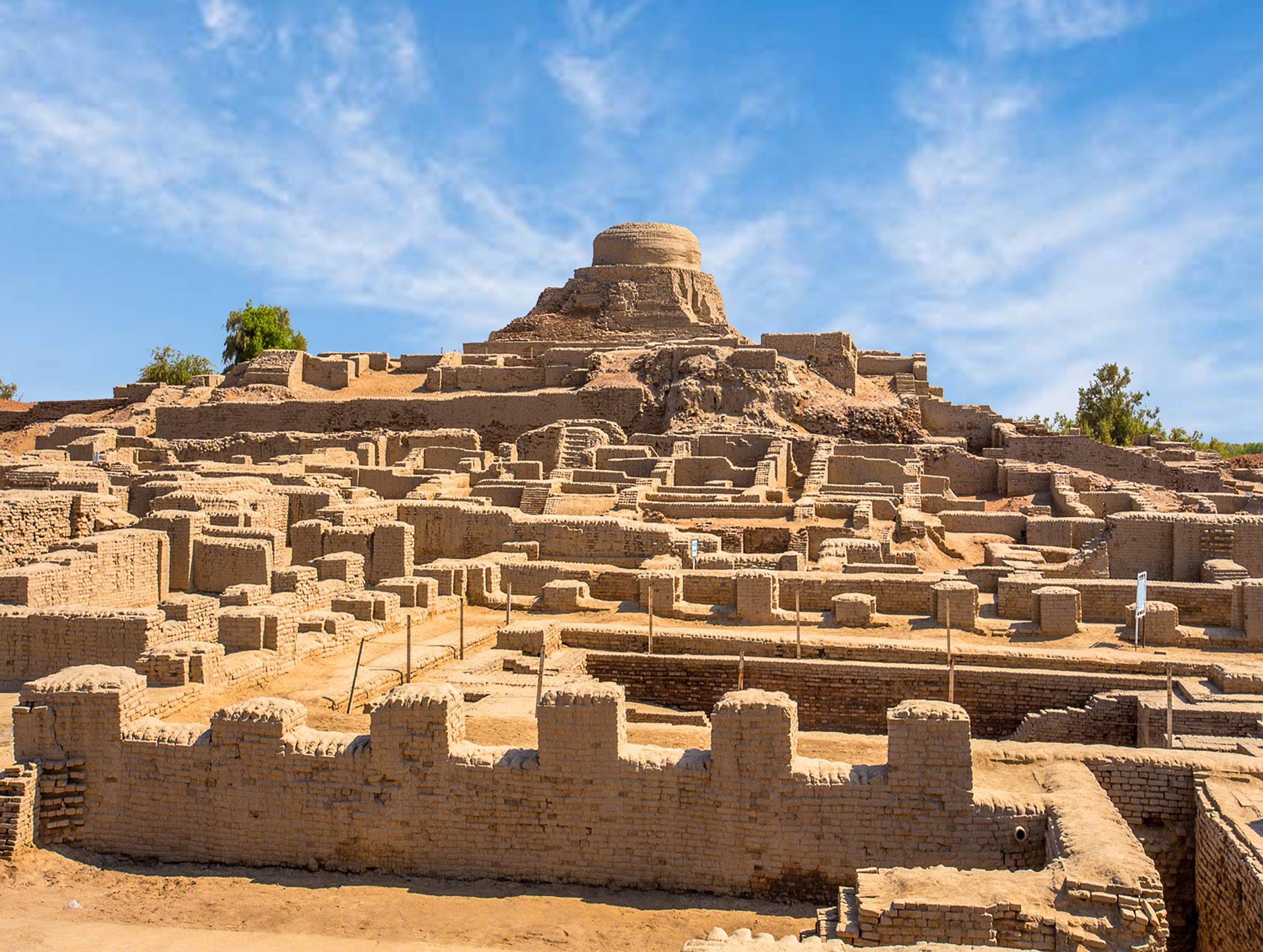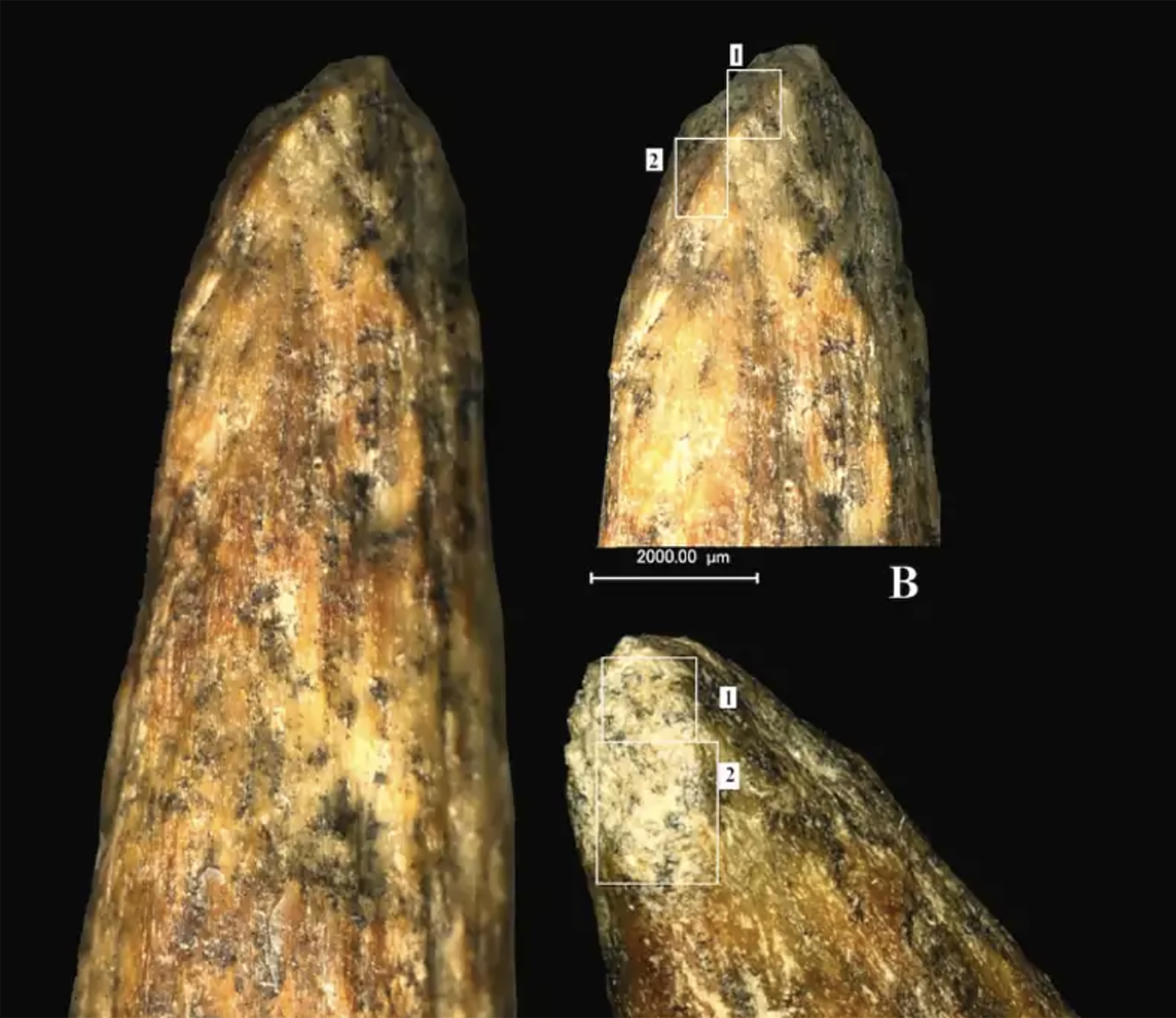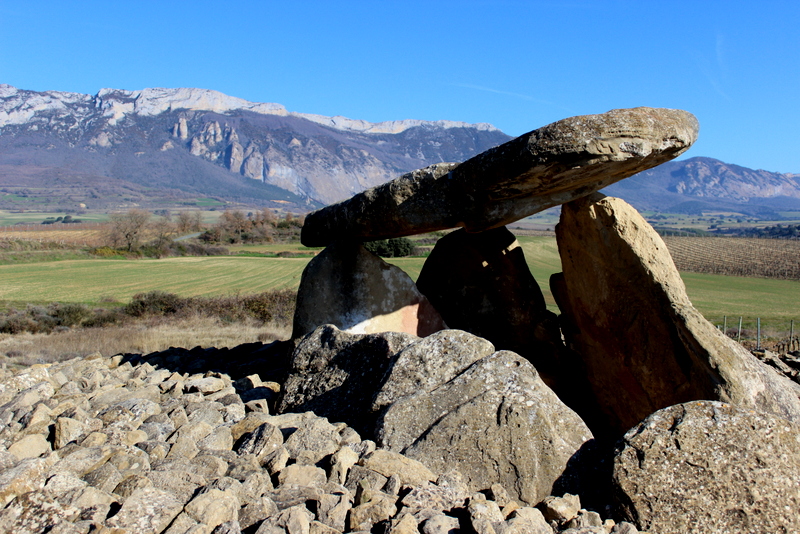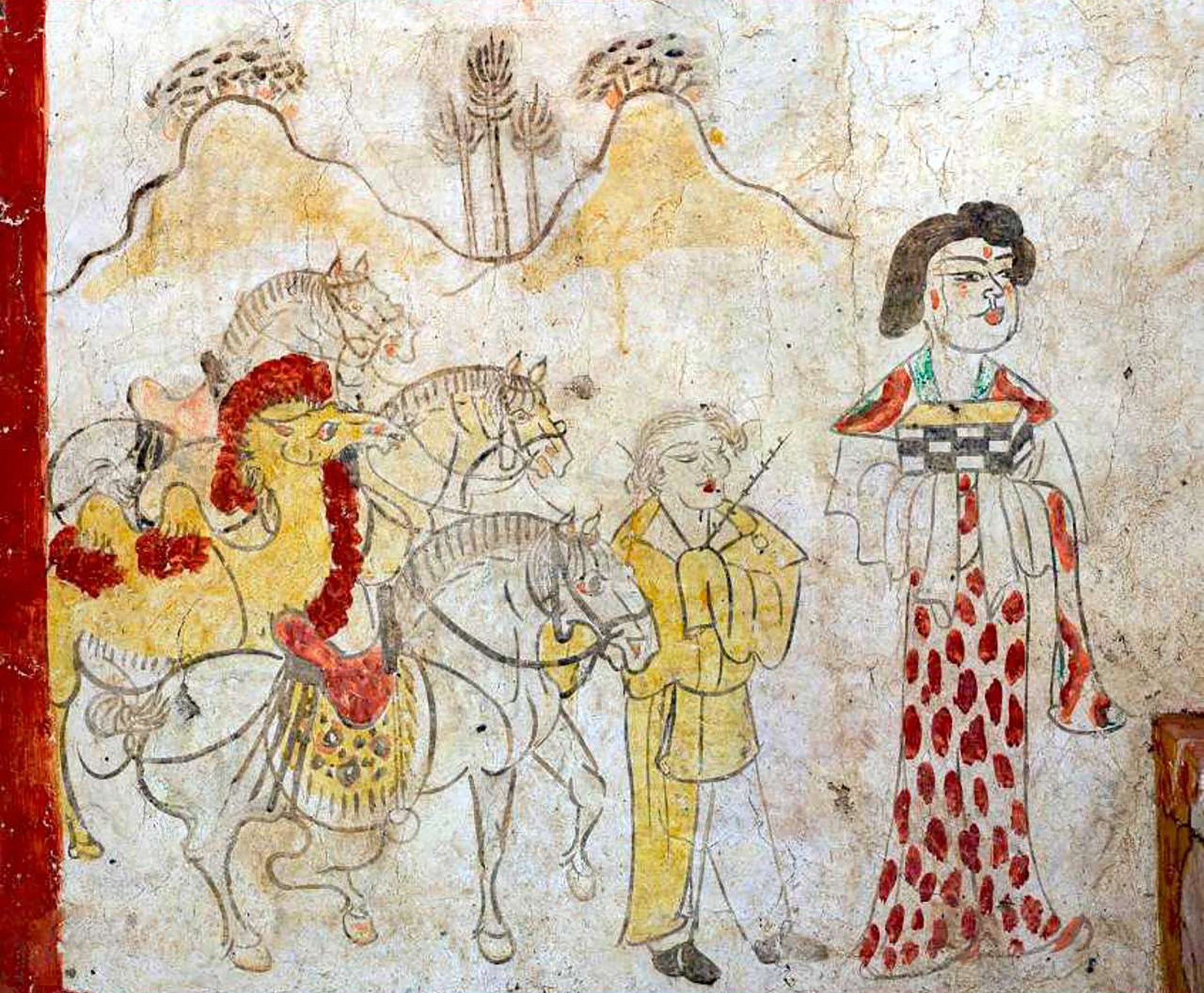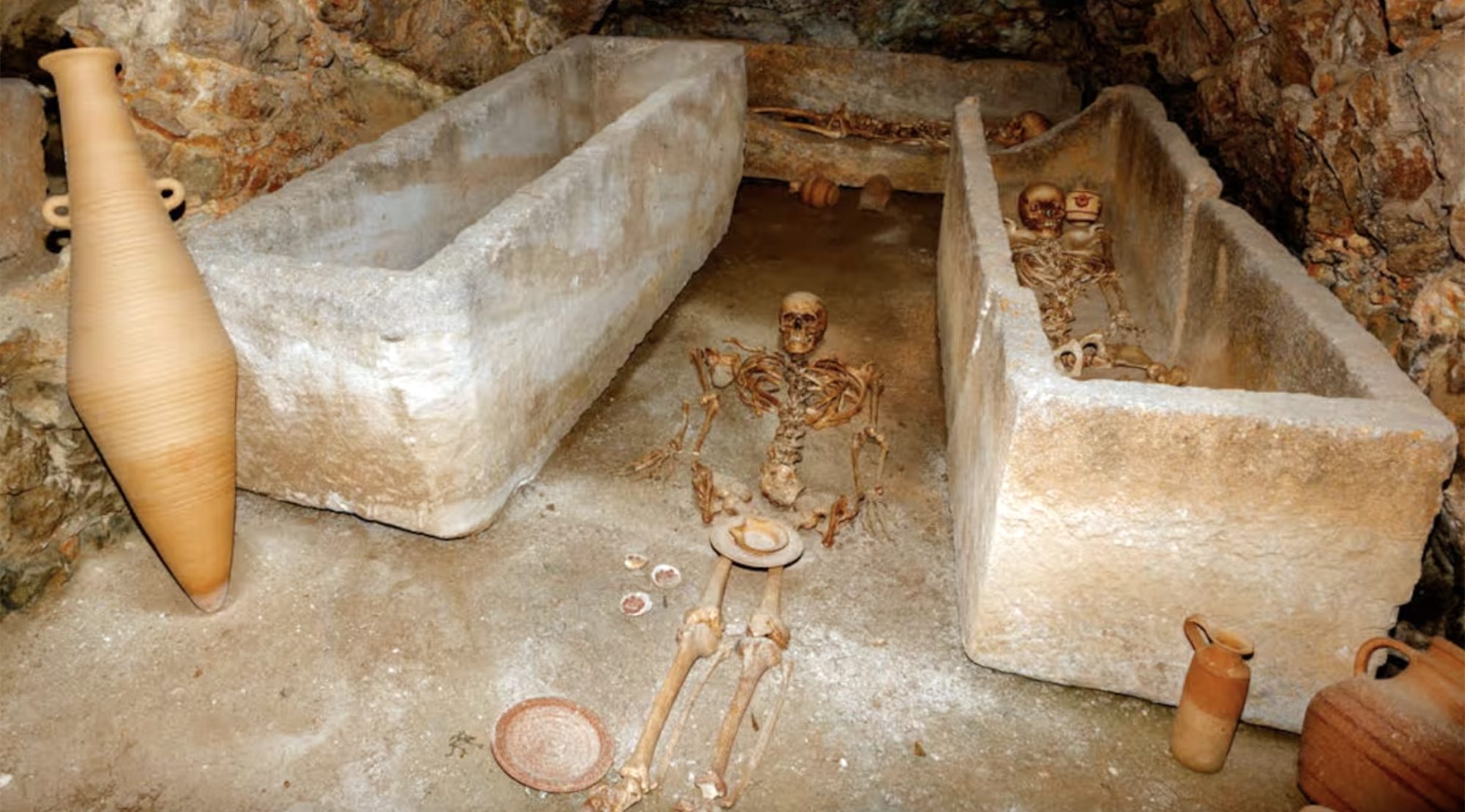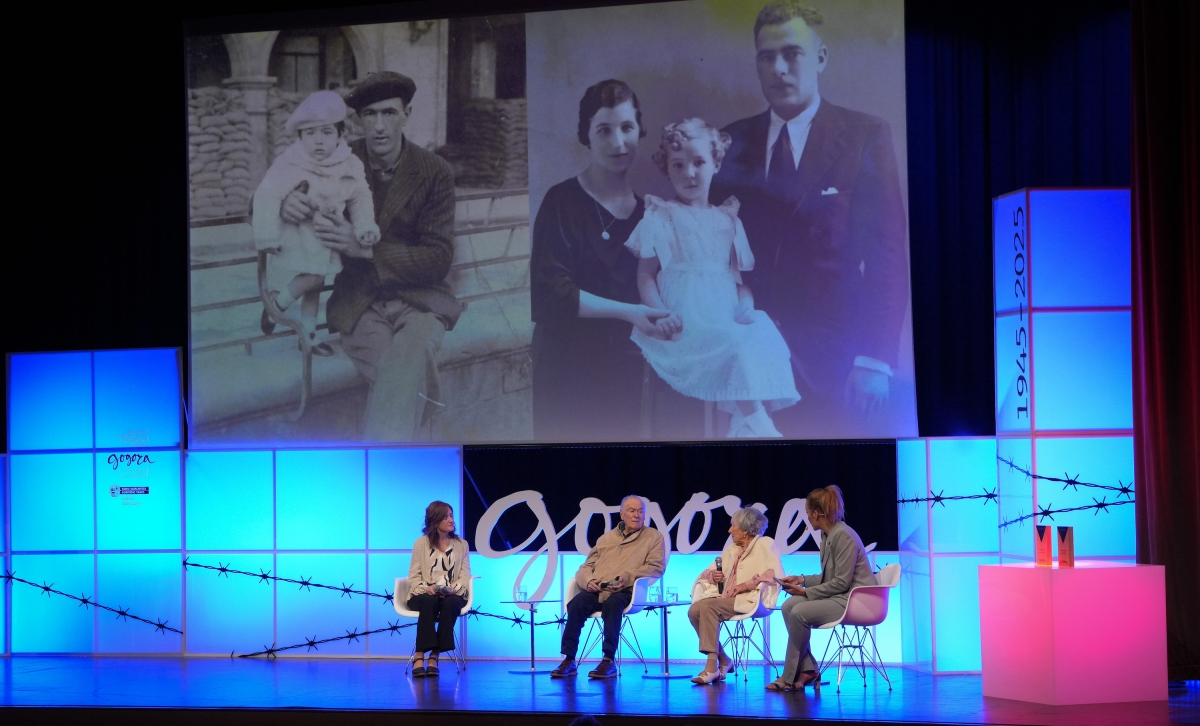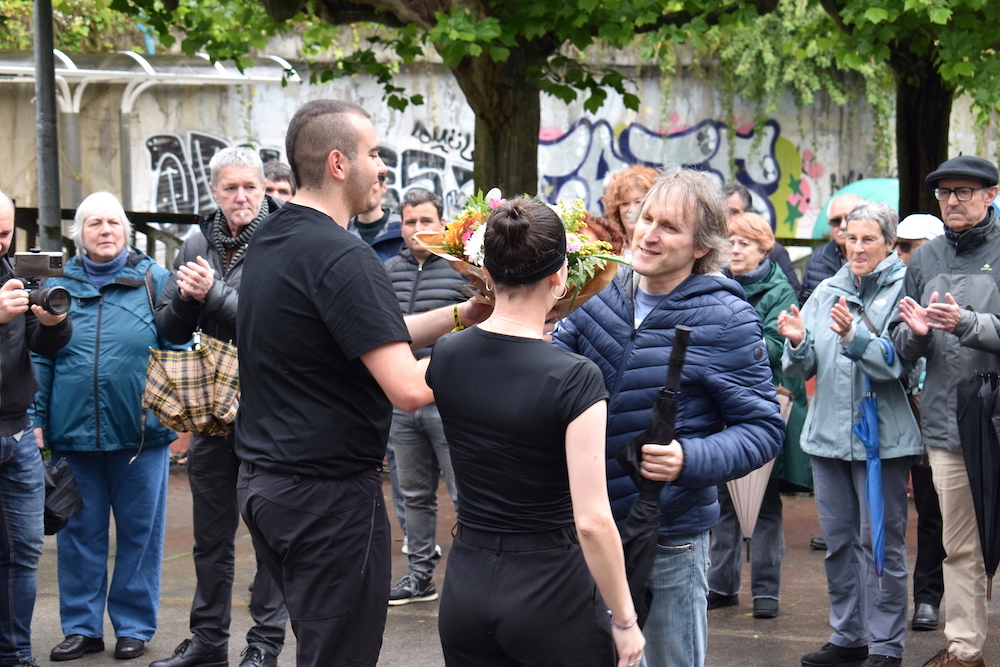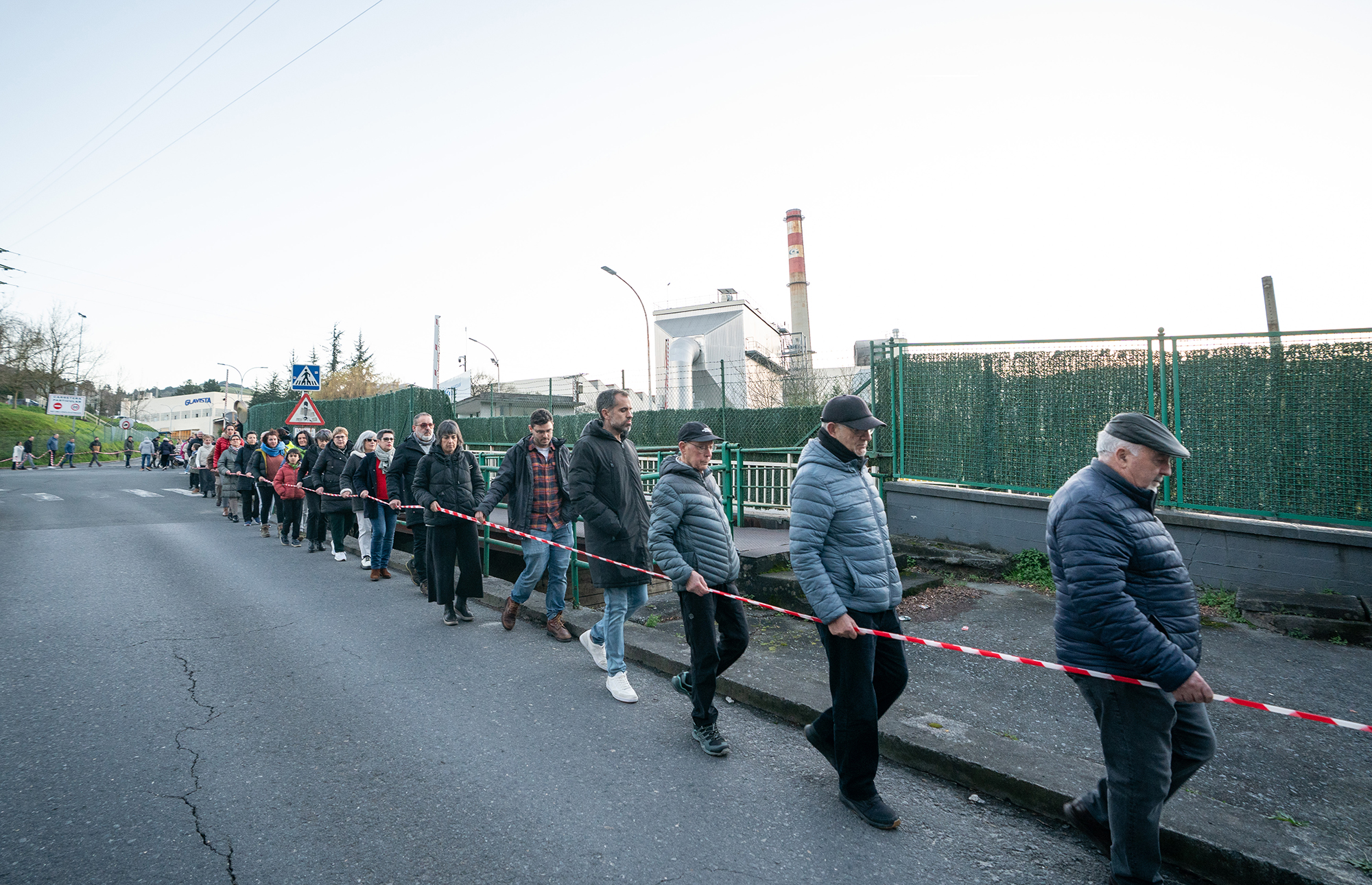“History cannot ignore these everyday problems in which we are protagonists”
The Geronimo Uztariz Institute was born 40 years ago with the objective of reinventing and disseminating the History of Navarra in a different way. In these four decades, he's brought together very diverse people and he's done a lot of research on a variety of issues. Young historians have also joined. The institute can now be in the transition between the old and the new.

Gemma Piérola (Barañáin, 1974) is currently president of the Gerónimo Uztariz Institute (GUI). He has studied History for many years in High School and is currently a professor at the UPNA. This Saturday, October 23, the Condestable of Pamplona will be held, coinciding with the 40th anniversary of the foundation. At 10:00 hours Emilio Majuelo will offer a talk on “The Historiographical Adventure of the GUI” and at 12:00 a round table will be held with the people who have been presidents of the institute.
Instituto Gerónimo Uztariz, Historia Económica y Social. Why those two surnames?
When the Institute was founded in 1984, the most innovative historiographical currents in other places, such as France, were Quantitative History or Economic History. The causes of economic development and social history were explored and their influence on the population studied. It was then that he began to talk about Economic and Social History, and in the 1980s, that had not yet been done in Navarra. After all, people were and are the protagonists of these social processes, and these two surnames are a sign of the historiographical commitment of the institute.
One of the main objectives of the GUI was to establish the historical bases of contemporary Navarre. To what extent has it been implemented?
It's not quite like that. Regarding the initial plans, Emilio Majuelo, one of the founders of the institute, in number 9 of the Revista Gerónimo Uztariz said: “We need to know more about the contemporary history of Navarre and increase collaboration to fill the broad historiographical, non-historical gaps.” Until then, history was not always accurate, sometimes disfigured or from few sources in terms of the empirical rigor that research requires. At that time, mainly artistic, ethnographic, Ancient and Middle Ages topics were addressed, and the lack of elaboration of contemporary history was striking.
Faced with this situation, a group of young historians founded the Gerónimo Uztariz Institute. They needed a different historiography, committed to the situation that the country was experiencing at that time and responding to that reality. Thus began to materialize the research carried out in the group, with a critical view and with empirical rigor; new interpretations of the History of Navarra appeared, but also complemented those carried out so far.
I'd like to give you some examples of this work.
During these four decades numerous conferences and congresses have been organized. The group has published a series of works that in the Contemporary History of Navarra were completely unknown. Examples: II. The republican Navarre, the religious issues of those years, the civil war, the violence and repression of that time, the subsequent Francoist dictatorship, the social conflicts of the 19th century in Navarre, the republican biographies, the works on the privatization of the Navarre mountains, the communal goods, the property relations between the end of the 19th century and 1936, the standard of living of rural Navarre....
And attention, a lot has been done, but there's still a lot to do, even more so when negationism is very alive, or conformism, or not to engage historiographically. These attitudes do not help.
What contribution does history have to make to Navarra in 2024?
I believe that history has at least two functions. A theorist who shows what happened. The other social, to sustain the need for a critical awareness of the human being with respect to his collective past, is the commitment to look and feel the problems of the world in which we live. The work of the historian is not to build a tradition that is accepted by the majority, but to know the facts and analyze their causes and consequences.
Much progress has been made in research and perhaps not so much in outreach. Is the issue of disclosure still pending?
For us, disclosure is very important, we are in it. There we are with high school teachers, city councils and other associations. History has to extend to all audiences, but it's not always easy. We have just had a conference on History with Memory in Navarra and there, fellow high school students emphasized that society changes, its language, and the time of attention, and that therefore we need other ways of telling history. Working history with rigor and a good podcast of history are not contradictory; proof of this is the welcome received in Euskalerria Irratia podcasts made by a group of young researchers graduated in History.
I have the impression that in education far-off history is even more important than that which happened a few decades ago, and that what happened from Francoism to the present day is played less. I do not know if that is the case at all.
Yes, it is. What is to be done about that? I think we have to know that story that we have close to us, we should not fear it, nor see it as a historic taboo. Some say that it has not been long enough to look at that time with sufficient perspective, but I do not think that is the case. That is used as an excuse. There may be processes that aren't completely closed, but there's no problem or prejudice to study recent history.
Research is an important objective of the GUI and for its research we have to go to the archives, but it is not always possible, there are still many topics completely closed. Is society asking for the necessary files to be opened so that it can be investigated?
In society -- that's not easy to answer, but we ask, yes, don't hesitate. Proof of this is that last year the files of 40,000 Navarros prisoners during the dictatorship were transferred to the Archivo Real y General de Navarra, and thereafter they will be the subject of study for those who wish. It was a long-standing request and has always been denied. That will help to better understand what the repression was like during the Franco regime.
Although late, the files are gradually opening, it is striking how difficult it is to reach various sources in Navarra. In other places, there are no problems with tracking, but here we are. Legislation does not help.
What challenges does the GUI have today? What about the historiographies of Navarra?
I have just quoted an article by Emilio Majuelo in which he said: “The future of the Institute is linked to collective work, reflection and debate, as well as to the critical spirit and committed to the reality we live in.” And in addition, we must adapt to the new areas that require historical analysis and to the public that reads and listens to them.
History cannot ignore these everyday problems in which we are protagonists, it cannot ignore the commitment to reality, with all that that means.
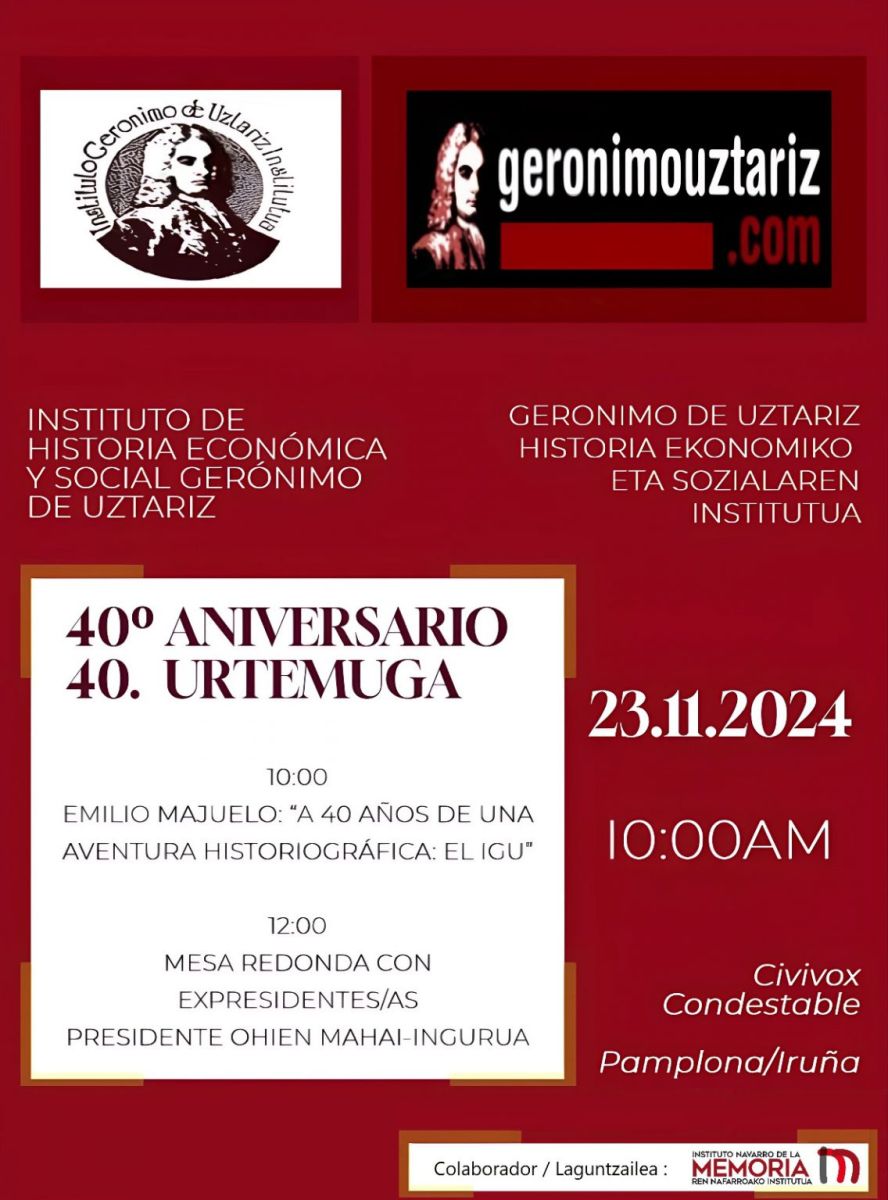
The Indus Valley, about 5,000 years ago. The city of Mohenjo-Daro had about 35,000 inhabitants and, according to recent PNAS publication, had a very low Gini coefficient of 0.22 – a coefficient that measures the economic inequality of societies through the degree of... [+]
More and more studies indicate that Neanderthals had more advanced cognitive abilities than previously thought. The latter, published in the Journal of Archeological Science, refers to the spearhead of bone found in the Mezmaiskaya cave in Russia in 2003.
Using microscopy,... [+]
I've been enjoying a book lately. In a very short time I have read it twice; the first with pure delight and the second with a pencil in my hand. Hoces de piedra, martillos de bronce, by the Spanish archaeologist Rodrigo Villalobos, aims to explore prehistoric society to answer... [+]
In the Chinese province of Shanxi, in a tomb of the Tang dynasty, paintings depicting scenes from the daily lives of the dead are found. In one of these scenes a blonde man appears. Looking at the color of the hair and the facial expression, archaeologists who have studied the... [+]
Carthage, from B.C. Around the 814. The Phoenicians founded a colony and the dominant civilization in the eastern Mediterranean spread to the west. Two and a half centuries later, with the decline of the Phoenician metropolis of Tyre, Carthage became independent and its... [+]
Salvador Puig Antich frankismoaren kontrako militantea izan zen. Askapen Mugimendu Iberikoko kidea, 1973ko irailaren 25ean atxilotu zuten. Gerra-kontseilua egin zioten, eta garrotez exekutatu zuten handik sei hilabetera, 1974ko martxoaren 2an. Aurtengo otsailean baliogabetu du... [+]
Rudolf Botha hizkuntzalari hegoafrikarrak hipotesi bat bota berri du Homo erectus-i buruz: espezieak ahozko komunikazio moduren bat garatu zuen duela milioi bat urte baino gehiago. Homo sapiens-a da, dakigunez, hitz egiteko gai den espezie bakarra eta, beraz, hortik... [+]
Böblingen, Holy Roman Empire, 12 May 1525. Georg Truchsess von Waldburg overthrew the Württemberg insurgent peasants. Three days later, on 15 May, Philip of Hesse and the Duke of Saxony joined forces to crush the Thuringian rebels in Frankenhausen, killing some 5,000 peasants... [+]








